Reorganizing your kitchen is a time-consuming task that you probably don't think you need to do. After all, you've been an adult long enough to know that chips go in the pantry, milk goes in the fridge door, and tomatoes go in the drawer at the bottom of the refrigerator.
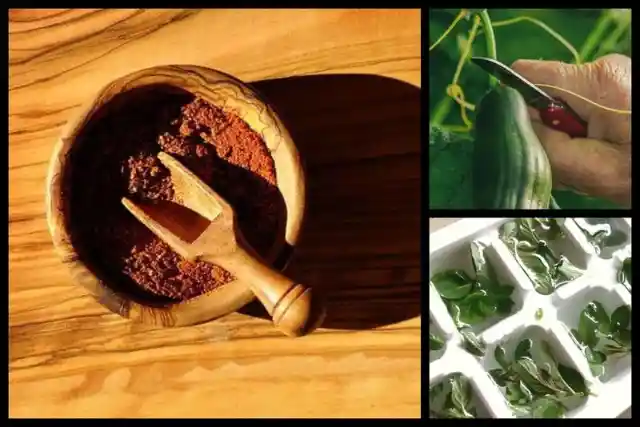
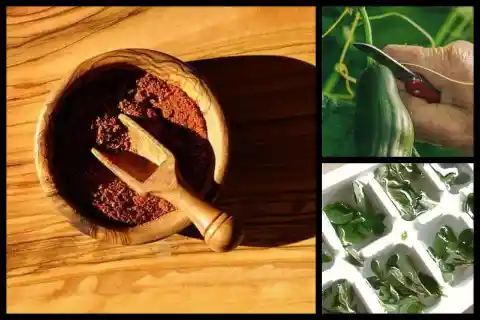
Indeed, there's a good chance you've been storing a variety of foods incorrectly your entire life without even realizing it. Changing how you keep these foods will not only make them taste better but also make them last longer, which is a big deal that affects more than just your budget — however, the lower grocery bill will certainly help.
Discover the best food storage tips the internet has to offer!
Maple Syrup Last Longer When Kept in The Freezer
You won’t want to waste any pure maple syrup. If it's on sale, buy it in bulk, and it'll last for years. As long as the jar has not been opened, pure maple syrup can be safely stored in your pantry for a long time to come.
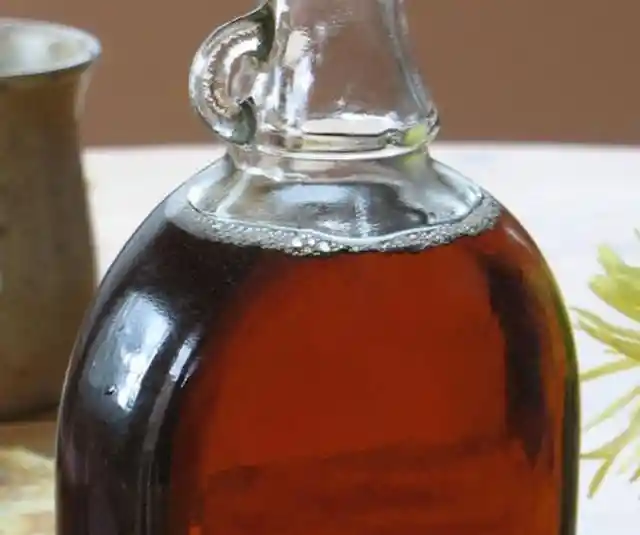
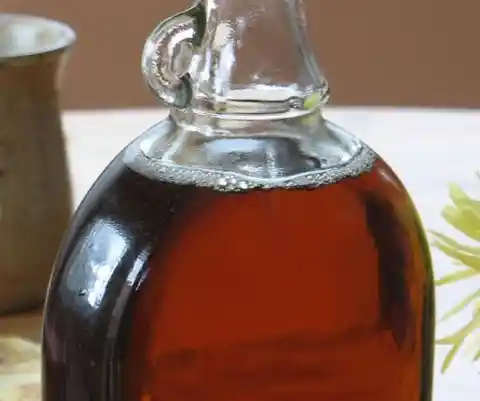
However, because it contains no preservatives, pure maple syrup should be kept in the refrigerator once opened. Mold will grow on the surface otherwise. If you have a lot of syrup, divide it into glass jars and freeze the rest. Maple syrup can be stored in the freezer for years without spoiling.
Herbs and Olive Oil Make an Excellent Combination
Have you ever wanted to know how to keep your herbs fresher for longer? Cooking with herbs can enhance the flavor of your food, but if you do not use them right away, they could go bad, and you'll waste money.
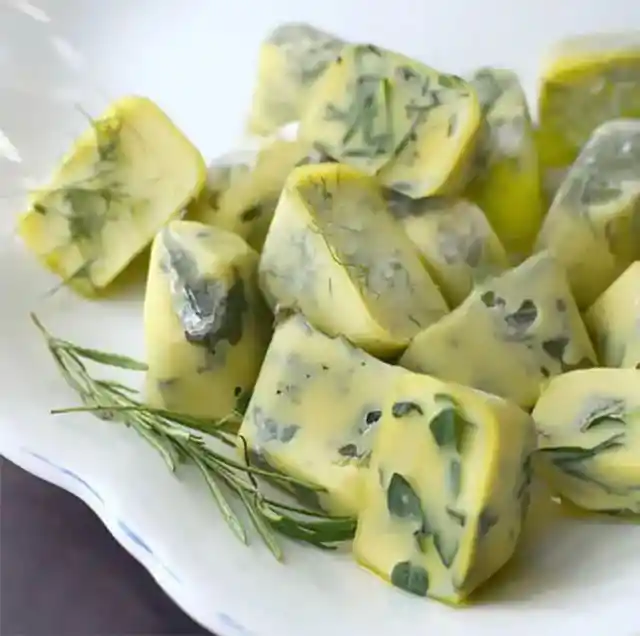
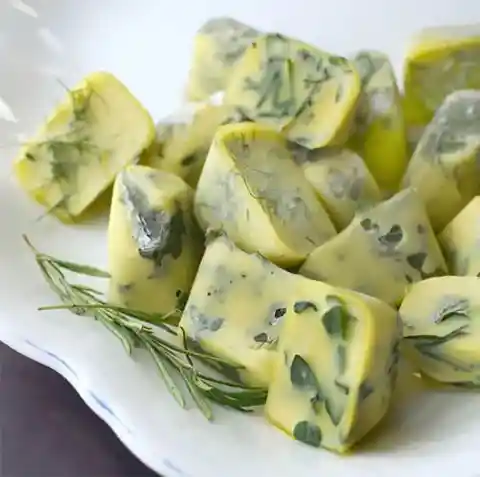
Instead of throwing away the herbs after they have lost their flavor, place them in ice cube trays with olive oil and place them in the freezer. This extends their flavor, and you can take one of the cubes as a base in almost any dish. It tastes best when combined with rosemary, thyme, sage, or oregano.
Lengthen Leftover Guacamole Using Cooking Spray
Guacamole is, without a doubt, the best dip in the world. Guacamole is typically one of the last things you make before your guests arrive if you're throwing a party. Because once exposed to air, your beautiful green mixture turns into a disgusting brown mess.
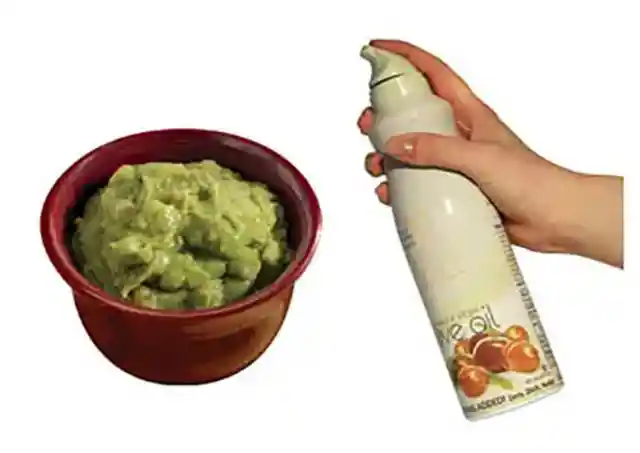
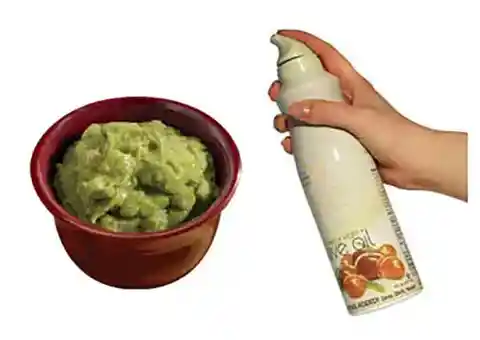
But there is a way to keep your guacamole fresh for at least a couple of days so you can dip your chips into your delectable creation. Before putting it back in the fridge, spray it with cooking spray. This should keep your guacamole fresh for up to three days.
Prolong Your Lemon’s Life
Unless you're making lemonade or cutting lemons for shots, you're unlikely to use an entire lemon in one go. So if you find yourself throwing away pieces of lemon that have turned even sourer than they began, you should know that there are numerous ways to keep them fresh.


When slicing a lemon, don't discard the ends; instead, use a toothpick to hold it back onto the other half you didn't use. Lemons can also be sealed by dipping them in paraffin wax. Lemon wedges may also be frozen and used as ice in drinks as needed.
Fridge Door Isn’t For Milk
The refrigerator door may appear to be the ideal location for storing milk—your carton may fit perfectly on the shelf. However, the truth is that the door shelves are most likely the last place you'd want to put your dairy products in your fridge.


Every time you open the fridge door to get a drink or a snack, the food on the door is exposed to the warm temperatures inside your kitchen. Furthermore, the constant temperature fluctuations put your dairy products at risk of bacterial growth and spoilage.
Enjoy A Fresh and Crispy Lettuce
Have you ever had wilted lettuce because you could not finish the bag after it was opened? Nobody enjoys the taste of mushy, flimsy greens when fresh, crisp lettuce is available. It is an issue that genuinely afflicts the entire population of the world.
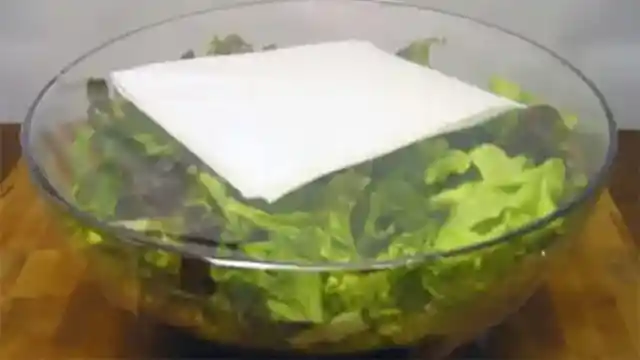
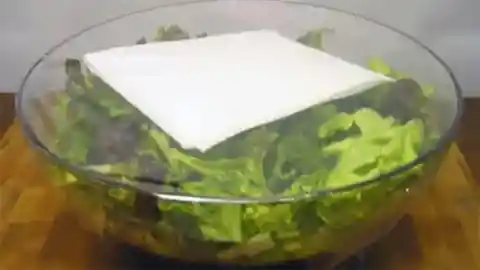
After you open your lettuce, place a paper towel in the bowl to keep it fresh for a week. This method also works with regular towels. The towel absorbs excess moisture, preventing the lettuce from becoming flimsy. You'll never have to deal with wilted lettuce again.
Roast Nuts, Then Freeze Them
Nutsunderstanding this storage hack is essential. Instead of storing them are ideal to have on hand for a quick and nutritious snack. So stockpiling them and in the kitchen, roast them for fifteen minutes at 350 degrees and then freeze them.
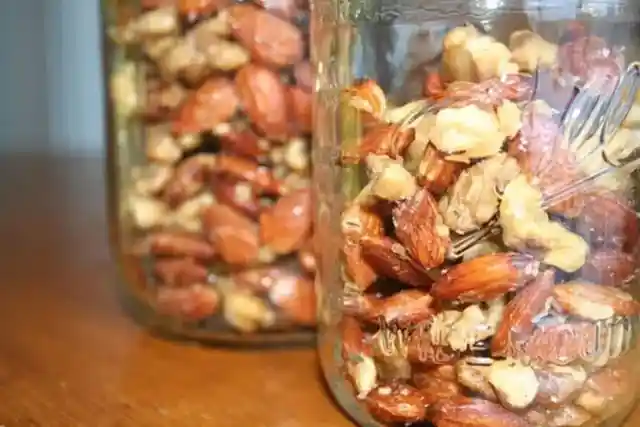
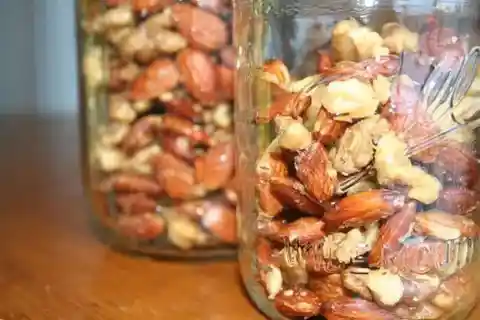
Almonds, pecans, and walnuts can be kept in the pantry for up to two weeks. If you haven't consumed them all by then, you'll need to store them somewhere cooler. Refrigerated nuts can be stored for up to nine months. They can be stored in the freezer for up to two years.
Put Ice Cream Containers In Plastic Bags
When people buy ice cream, it is usually consumed quickly and does not have to remain in the freezer for long. Those with self-control might pick up an ice cream carton and forget it in the freezer. This same ice cream will have freezer burn the next time they open it, destroying the creamy, delicious dessert.


Rather than allowing the freezer to mess up your favorite dessert, store it in a plastic bag. The plastic bag will keep the ice cream soft enough just to scoop while preventing freezer burn. Another trick to avoid freezer burn is to buy smaller containers.
Turn Them Upside Down
If you're a peanut butter fan like us, you'll understand how disappointing it is to reach the bottom of the jar and discover it's all dried up. It's difficult to spread the crumbling dried peanut butter, but it doesn't have to be this way.
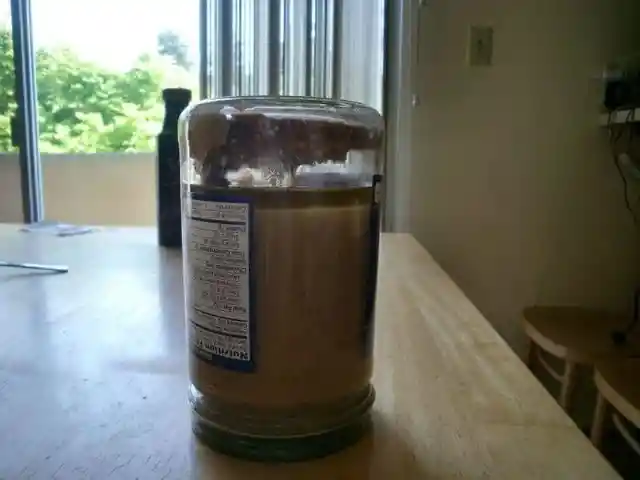

Keep your jar of natural peanut butter in your pantry upside down. As a result, the oils will spread more evenly throughout the jar. And your peanut butter will have a more sustained consistency, saving you the time of stirring it before spreading it on.
Tomatoes Storage Hack
You may believe that, by storing your tomatoes in the refrigerator until a recipe calls for them, you are preserving them. But keeping your tomatoes in the refrigerator until they're ready to eat isn't the best idea.
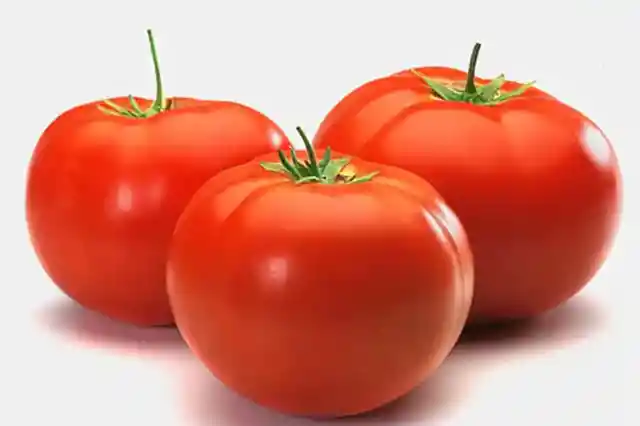
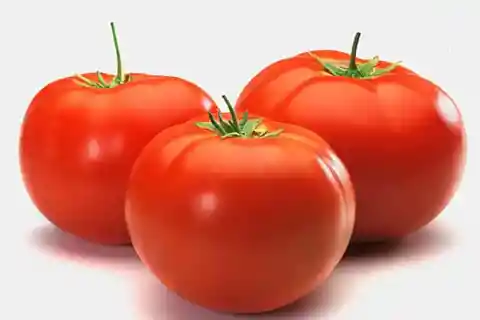
Tomatoes should never be stored in plastic bags. If you have unripe tomatoes, place them in a paper bag, stem side down, in a cool place until they turn red. Also, keep them with fruit to speed up the ripening process. Above all, allow your tomatoes to come to room temperature before eating them.
Grapes At Their Best
Grapes are another tasty fruit that becomes mushy quickly. Because of the ethylene gas, they ripen quickly, and you have to throw away half of them. One method is to freeze them, as frozen grapes are delicious on a hot summer day.
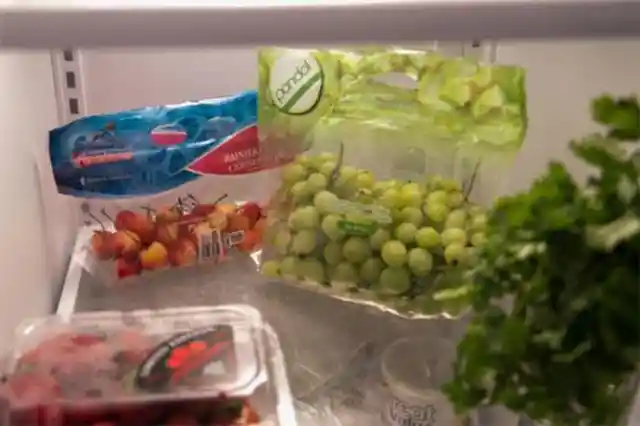

If you choose not to freeze grapes, you can store them in polyethylene bags, which are a type of plastic bag that keeps the product fresh. Grapes can stay as crunchy as possible for an extended time, depending on the container used.
Keeping Your Carrots Crunchy
Carrots are a pantry staple that can be used to bulk up stews, sauces, and soups; pureed, roasted, and steamed; eaten as a crunchy snack or baked into a cake. But here's the catch: the carrots have to be crunchy because no one wants to gnaw on a carrot that bends.


Remove the beautiful leafy green tops to keep this savory root vegetable at its tastiest. The leaves only serve to drain the carrot's moisture. Soak them in water, as you can see in the photo. Change it every four or five days or when the water becomes cloudy.
Dried Out Cheese
Everyone enjoys a fresh slice of cheese right from the wedge. Even lactose-intolerant people will endure the agony because cheese is incredibly addictive. However, once the cheese is sliced, the end can become dry, and no one wishes to eat that part.
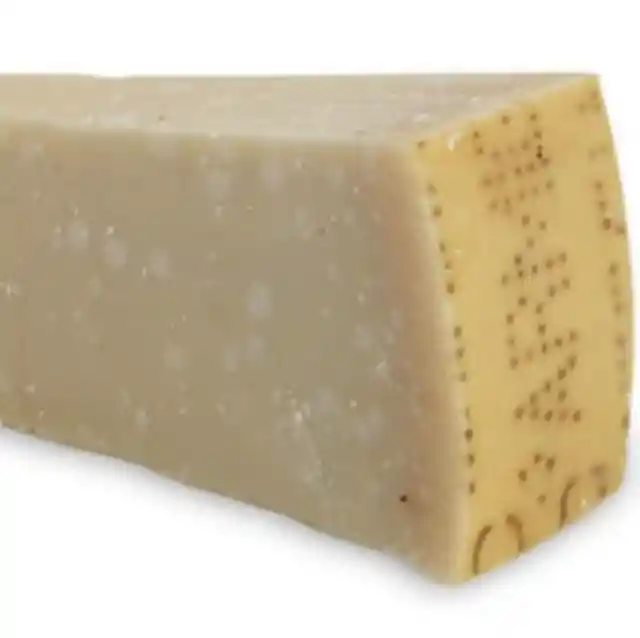
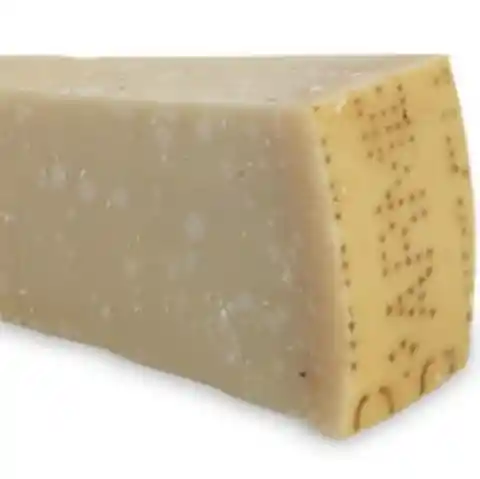
Rub a dab of butter on the cut side of the cheese to keep it from drying out. It may sound strange, but it will keep the cheese moist until the next time you cut it. If you find the idea of smothering butter on your slices odd, wrap it in a cheesecloth or wax cloth to keep it fresh instead.
Cucumbers Kept At Room Temperature
Raise your hand if you've accidentally made cucumber soup in the bottom of the crisper. It appears that the moment you purchase them, they begin to deteriorate into that signature slimy green mess. However, with a little forethought, you can slow the process and prevent the crisper soup.
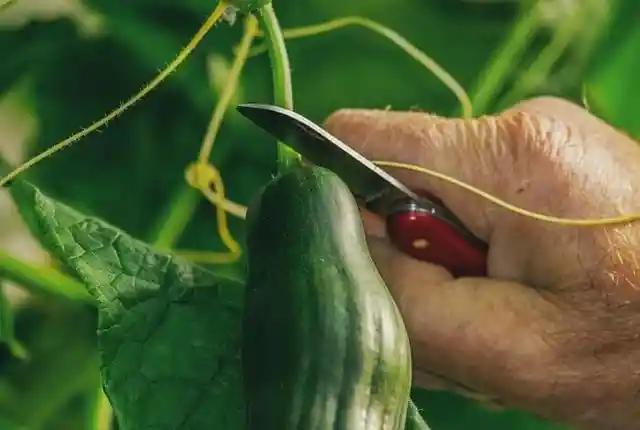
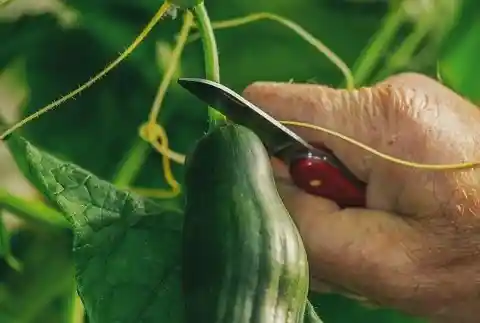
Keep them on the counter to keep them at room temperature. Generally, you should store fruits and vegetables in the same environment as the one you purchased them from. Cucumbers aren't sold in the fridge section, so don't put them in one when you get home.
Regrow Your Scallions
Have you ever wondered if you can still regrow food from inedible parts? Why go to the grocery store again when you can use the products you have on hand to grow more? It may sound odd, but numerous foods are easily grown at home.
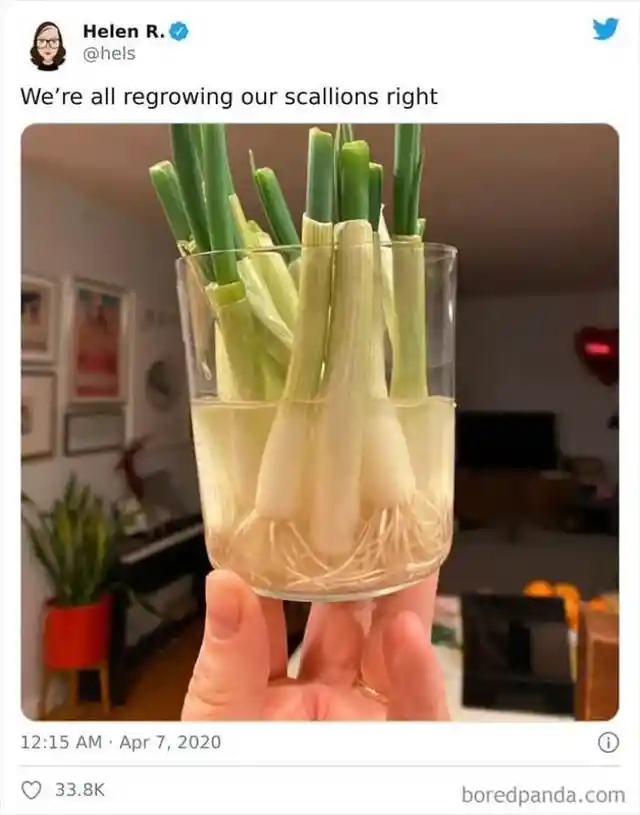
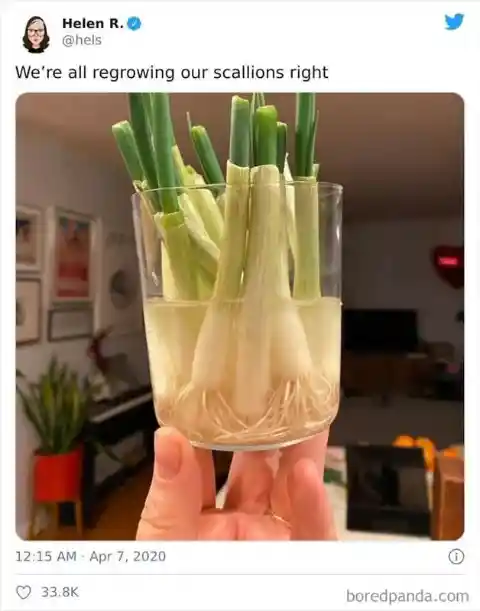
Instead of ditching the white ends of scallions, soak them in water and observe as they grow before your eyes. However, their flavor is enhanced when they are placed in soil. It's like having an infinite supply of scallions!
Keeping Asparagus Firm
Asparagus, like herbs, benefits from a constant water supply. You may be familiar with this method. First, trim the stalks' ends if they've dried out. Afterward, place the cut ends down in a cup of water.
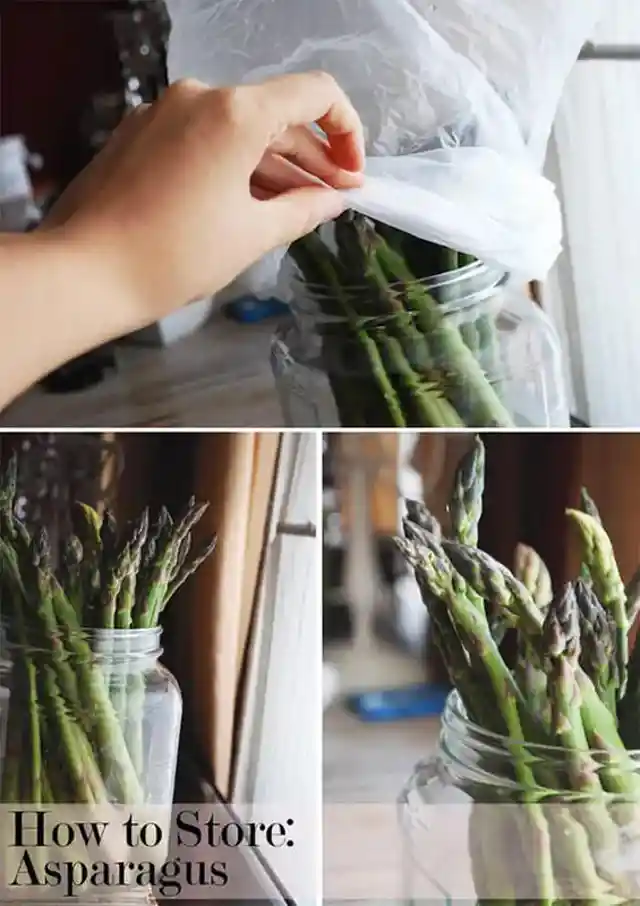
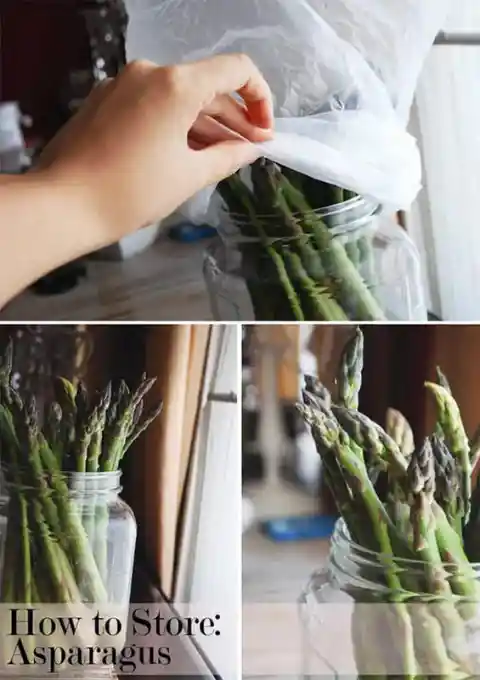
If you want to take it a step further, you can wrap the entire thing in a plastic bag to get even more out of them. Then, refrigerate, keeping a close eye out for cloudy water, and change when needed. And there you have it: firm, fresh asparagus for at least one week.
A Vinegar To Maintain Berries Ripeness
Raspberries appear to mold almost as soon as they arrive home from the store. The same goes for blackberries. Strawberries also shrivel within hours of purchase. What's the secret of berries staying fresh?
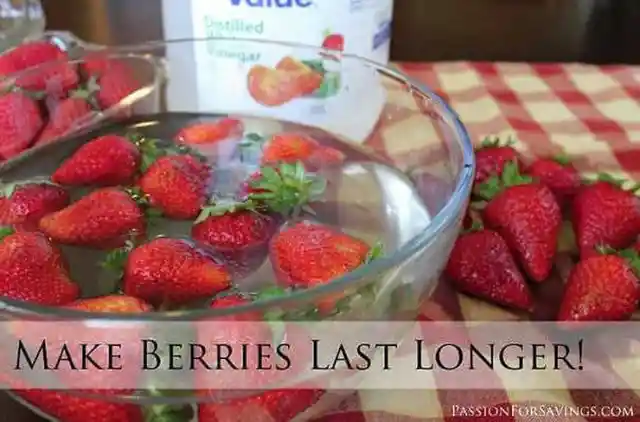
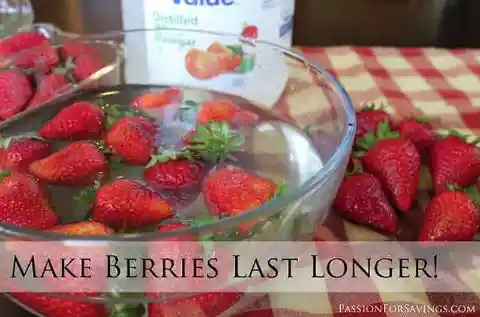
Mix one part vinegar with ten parts water to maintain your berries fresh for a week. Swirl the berries in the mixture, then drain, rinse, and place in the fridge. The water dilutes the vinegar to the point where you can't taste it. These strawberries can now be stored for nearly two weeks.
Wrap The Top
Unless you're purchasing bananas to make bread, you may not want all of them to become overripe too quickly. Unfortunately, all those hacks about separating the bunch and covering the stems in plastic floating around the internet don't seem to work.


Here’s one that does. Wrap aluminum foil around the tops of bananas to keep them fresh for three to five days instead of letting them turn brown. Keep bananas separate from other foods because they emit ethylene gas, which causes other foods to rot.
A Pantyhose In The Pantry
If you use onions frequently, you should be aware of this issue. If you buy a bunch of onions and don't consume them immediately, it may be challenging to keep them from rotting—but put those concerns aside.
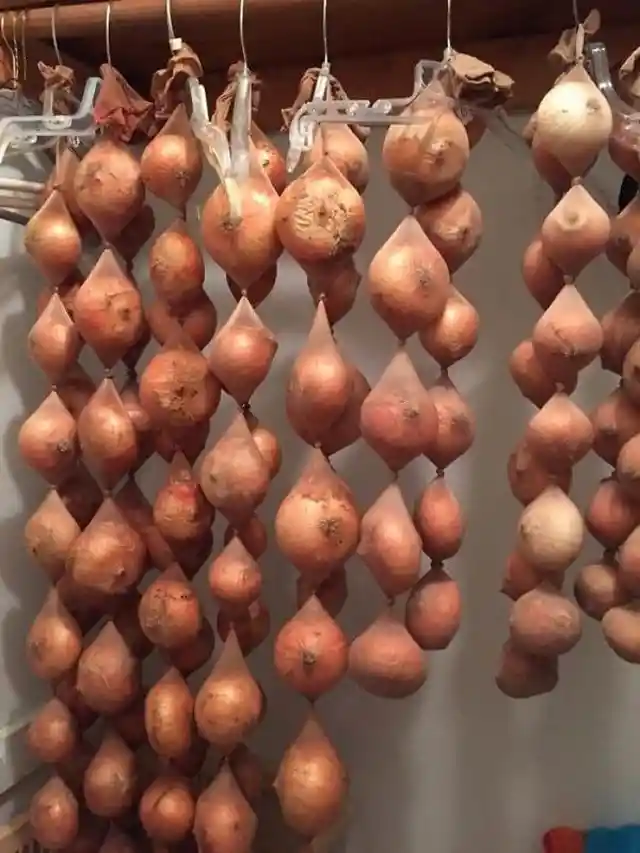
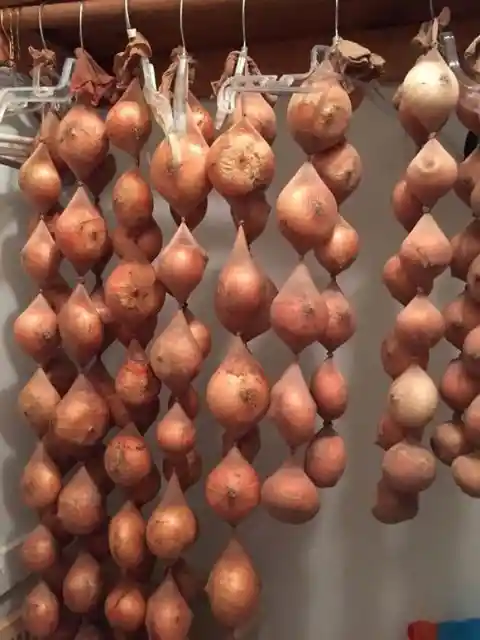
Instead, wrap your onions in pantyhose and create a knot in the middle of each one. Once you hang them, your onions will remain fresh for about eight months. Because onions aren't in season all year, you can buy them at their peak and save them with this method.
Put Your Mushroom In A Bagv
There are two possible outcomes when storing mushrooms in the refrigerator: One: they will become slimy. Two: they will eventually dry out. How are they able to do both? Depending on how you store them, there is either far too much or too little moisture. So, how should mushrooms be stored?
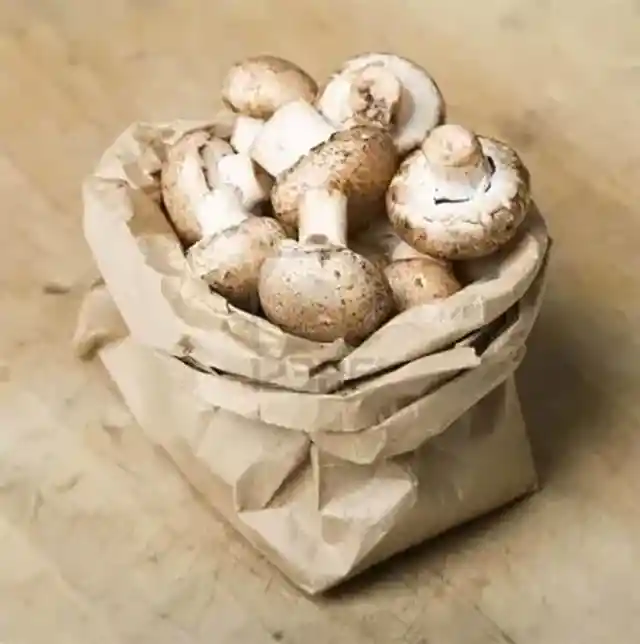
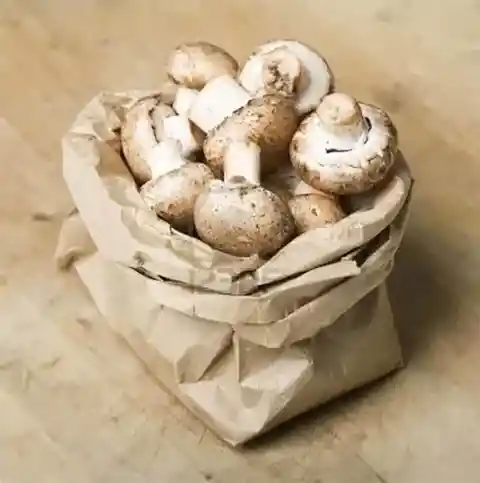
Store your mushrooms in a paper bag in the fridge or any cool, dry place to keep them fresh. If you store them in plastic, the moisture will be trapped, and mildew will grow. Nobody wants bacteria on their fungi.
Chilled Hot Spices
Spices can completely transform a dish and add flavor to even the blandest ingredients. Many people seem to believe that spices can’t go bad, but this is not true. Spices can lose their flavor over time if not stored correctly, leaving you with tasteless meals.
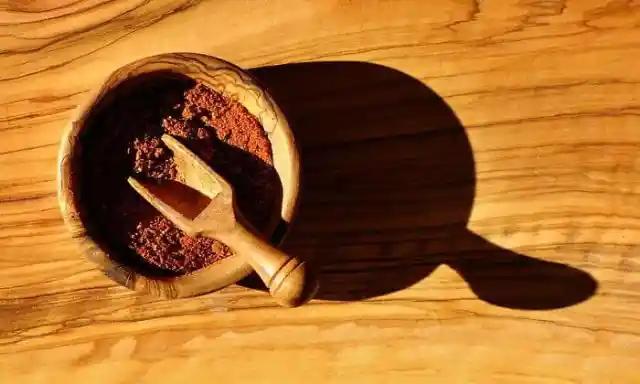
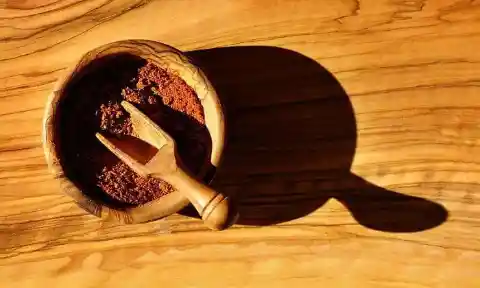
Red spices should be stored in cool places to preserve their flavor. Also, your spice rack should not be placed near the oven because the heat destroys the flavor. It's also a good idea to buy spices in bulk at ethnic markets because they're much cheaper and fresher than at the grocery store.
An Instant Warming Drawer
We, like most people, assumed that the bottom drawer connected to our oven was for storage. We assumed the companies had made this drawer to add space to each kitchen because it is not safe to store stuff inside the oven—but we were wrong.
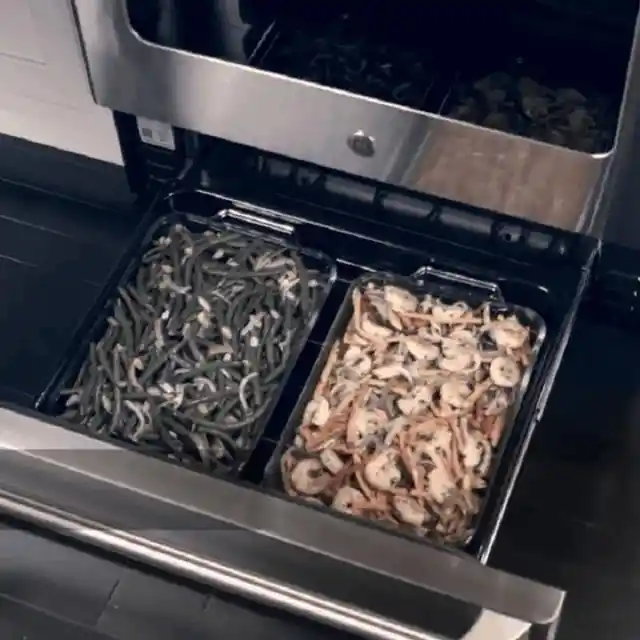
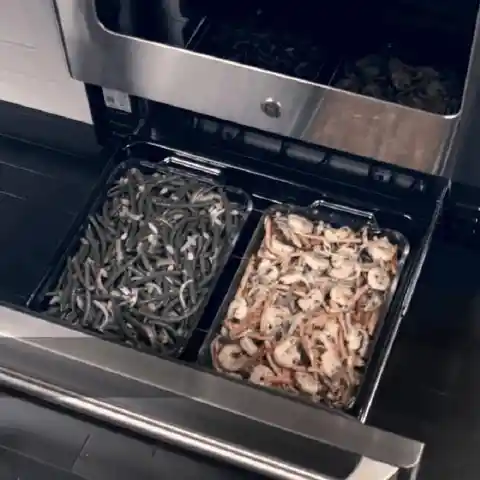
The bottom drawer is designed to keep food warm while the rest of the meal is being prepared. When you have a lot of dishes to cook and don't want them to get cold, simply place them in the warming drawer and convert it on while you finish cooking. Every day, you learn something new.
Turn The Container Upside Down
Cottage cheese and sour cream can be used in a variety of ways, but they do not keep well in the refrigerator. These ingredients are used in so many recipes, but it's difficult to keep them new when you only use a small amount for one dish.
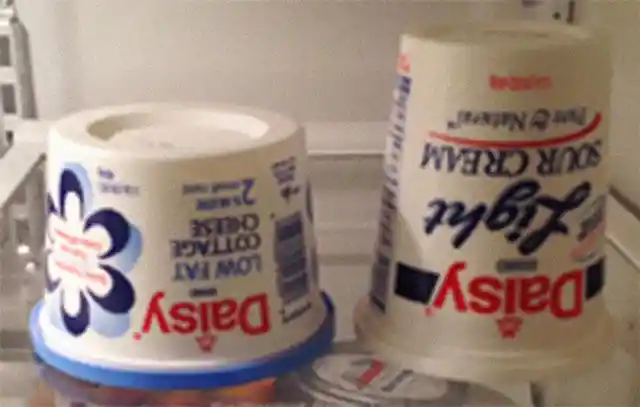

After you've finished with your cottage cheese or sour cream, replace the lid and turn the container upside down. This creates a vacuum seal, which slows bacteria growth and allows them to live longer. This works not only for sour cream and cottage cheese but also for guacamole.
A Freezing Ginger
Although not everyone has ginger in their kitchen, it has numerous applications ranging from acne care to cold remedies. It can be used in a variety of recipes from various cultures, but only some are aware of the best ways to store it. The freezer is the best place to keep fresh ginger.


Not only will freezing ginger keep it fresher for longer, but it will also make it quicker to peel and grate. Some ginger parts are more difficult to peel because they grow in unusual shapes, but frozen ginger does not require peeling because it grates and minces so finely.
Reviving Your Raisins Using Hot Water
People of all ages and backgrounds consume raisins. Raisins appear in everything from trail mix to cookies, and they even appear when no one expects them. They become dry and hard over time, but don't throw them just yet!
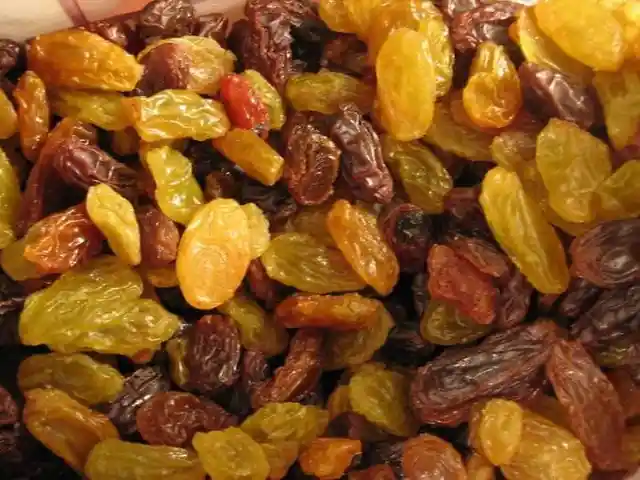

Instead of throwing away dry raisins, soak them for an hour or two in hot water to rehydrate them. Pat them dry and place them in an airtight container to prevent further drying. You can rehydrate them in small batches as needed.
Leftover Avocado
If you're anything like us, you probably enjoy avocados on toast with some chili flakes. However, there is one major issue with this food: there is always half left over, and it turns brown after a few hours in the fridge.
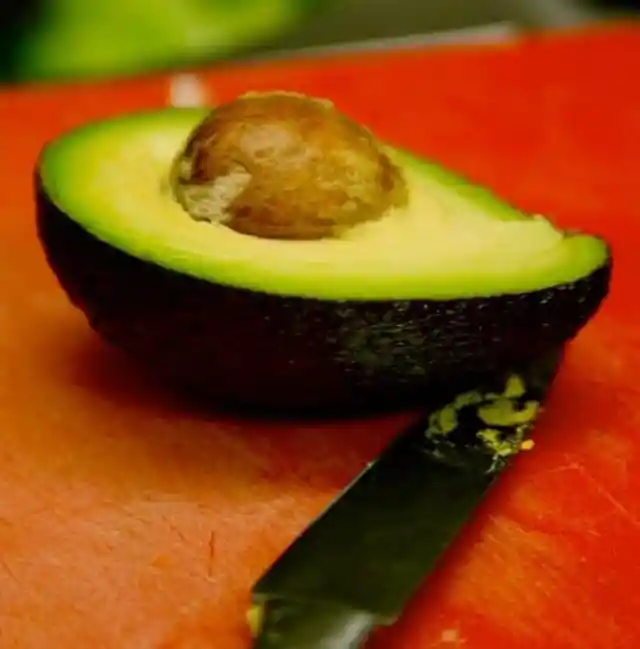
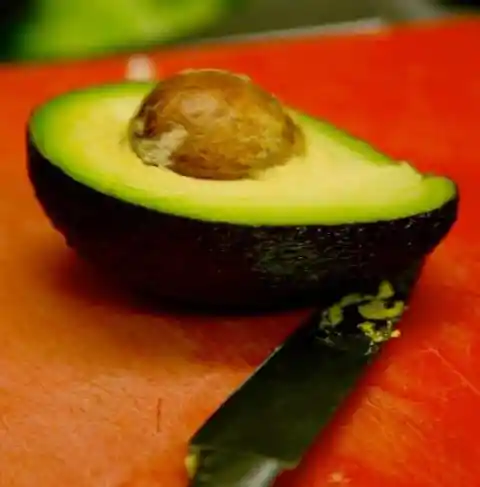
Avocados brown faster because they are exposed to too much oxygen. Therefore, it is preferable to leave the pit in place so that it oxidizes slowly. Brushing the exposed areas with lemon juice and olive oil and placing them with onion will also keep them fresher for longer.
Cleaning The Fridge
This one may seem obvious, but you'd be surprised how many people don't clean their refrigerators regularly. Many people will laugh when they see this. However, there are numerous other reasons to clean your fridge apart from hygiene.


After something spoils or molds, spores are left behind, ready to attack the other food products in your refrigerator. If you find anything moldy, throw it away and disinfect the fridge to remove any leftover particles that could spoil other items.
Aluminum Foil Is A Life Saver
Aluminum foil is well-known for its many uses. Foil is a kitchen staple for everything from quick fixes to wrapping vegetables. Aluminum foil is duct tape for cooking because it can fix any problem, including vegetable storage.
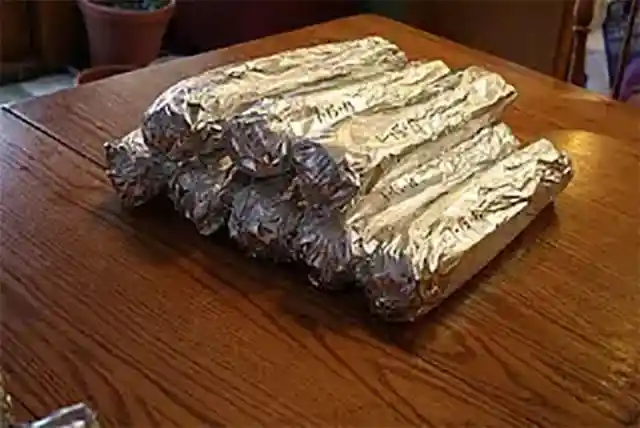
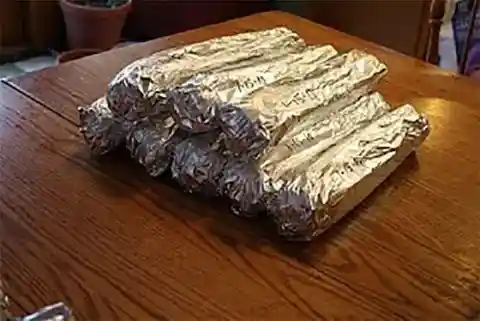
Wrap celery, broccoli, and lettuce stalks in aluminum foil and place them in the refrigerator. They will stay crisp and fresh for up to four weeks if you do this. It will also protect them from alien invasions because no one likes a broccoli stalk that has been probed.
Hot Bath For Honey
Honey should be in every pantry because it serves so many functions. It is a staple everybody has, from sweetening tea to at-home face mask recipes. Every type of honey will crystallize at some point, but that does not mean it has to be discarded.
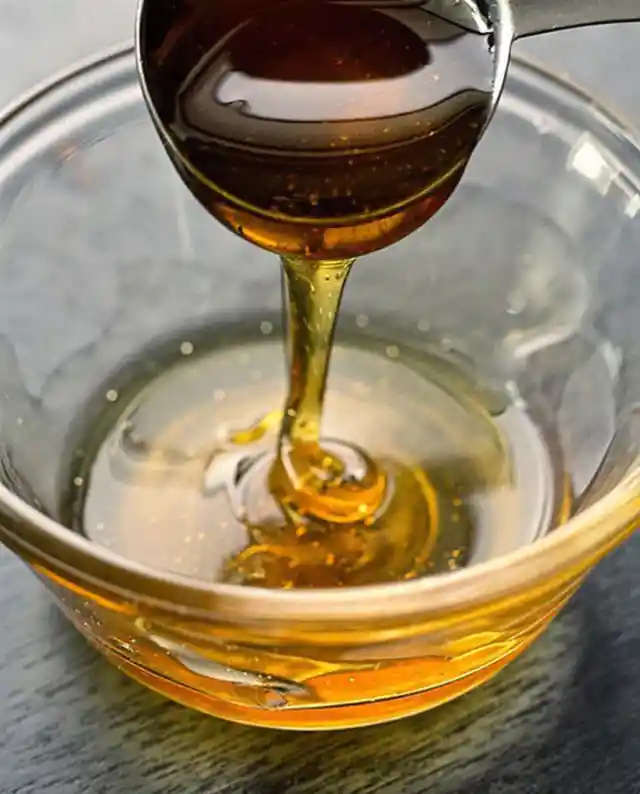
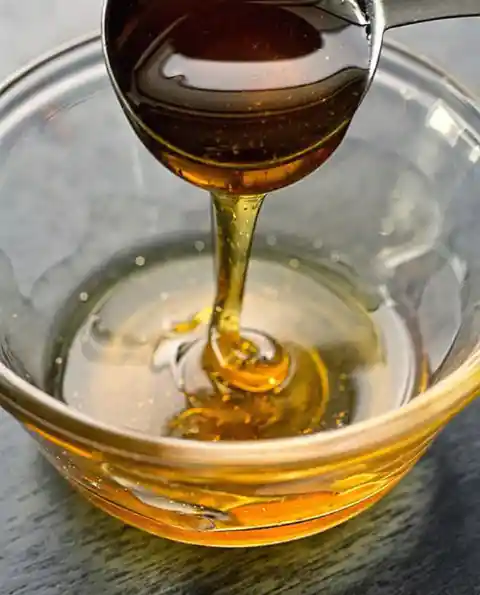
When you notice your honey crystallizing, place it in a water bath and bring it to a very light simmer. Remove the pot from the heat and continue to stir until the crystals are dissolved.
Bread Should Never Be Placed In The Fridge
Some people keep bread boxes on their countertops, so it may seem obvious not to store bread in the refrigerator. However, many believe refrigeration will keep the bread from molding, especially since it molds quickly.
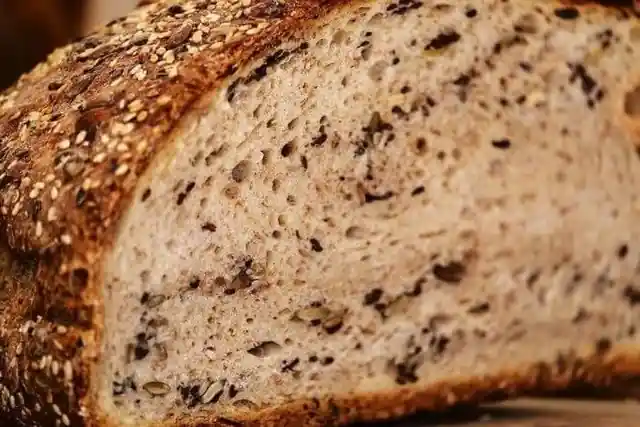

Contrary to popular belief, storing bread in the refrigerator causes it to go stale. It is best to leave it at room temperature or purchase a bread box for ideal storage. This method works best for homemade bread, but store-bought loaves will last longer in the fridge because of their preservatives.
No Sealer, No Problem
Plastic is terrible for the environment, but it has uses sometimes. Many DIY hacks, such as this one, allow you to recycle old plastic. Unless you tie a knot in the flimsy plastic pouches you get at the store, they will not stay closed. But what if you need to open it right away?
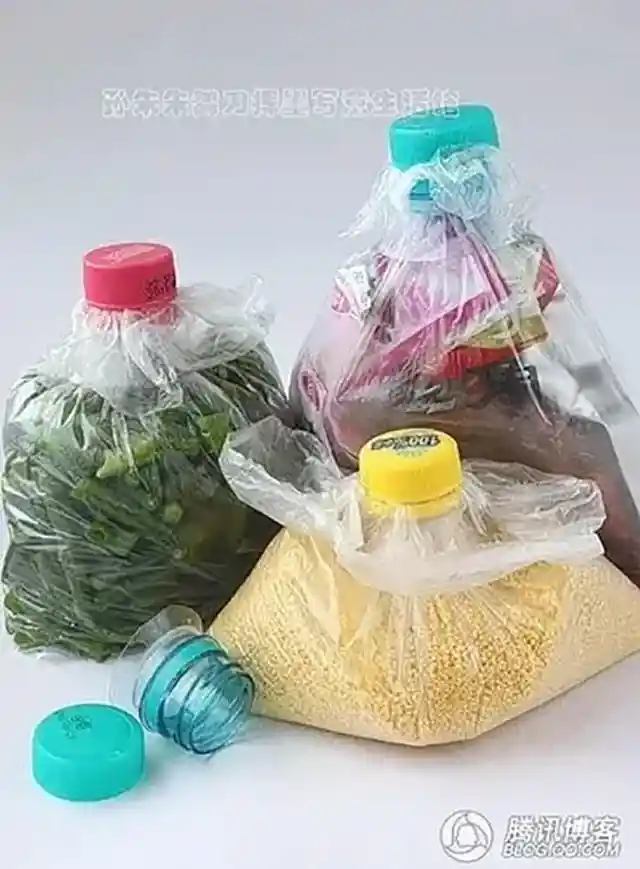
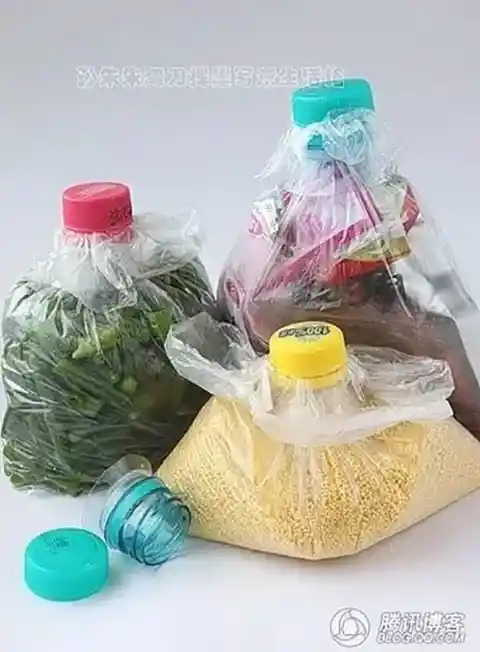
Instead of tying a bag, simply cut off the top of a plastic water bottle, insert the bag, and secure it with the cap. The bags can then be opened and closed quickly. Reusable containers are preferable if you can avoid using plastic.
Another Help From A Plastic Bottle
Green onions are commonly used in many Asian dishes. However, if you buy a large quantity at once for a small recipe, you have an excess that will spoil quickly. There is a way to save your excess green onions instead of throwing them away.
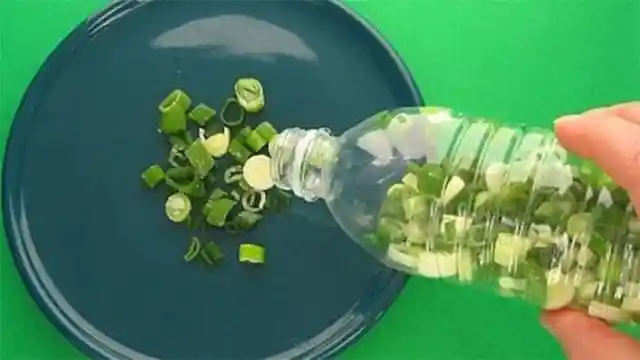
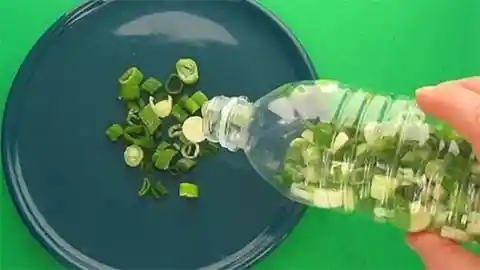
After washing and chopping, remove any excess moisture and place them in a dry water bottle. Place the green onions in the freezer after closing the bottle. They must be dry to avoid freezer burn if left in the freezer for too long.
Freeze Mashed Potatoes Like A Pro
During those cold winter months when stodgy food like this is a blessing, you're going to be swamped with leftover food on top of leftovers. However, going through all of it before it all goes off can be challenging.
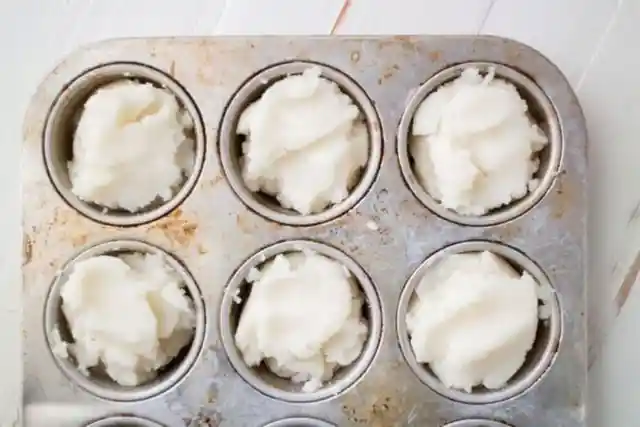
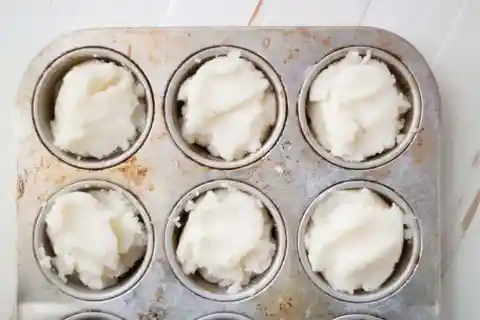
Mashed potatoes are a holiday staple. But what happens if you have too much? They can always be placed in the freezer—for up to a year or so. Then, put them in the fridge when you're ready to defrost them. Putting them straight in the microwave will change their texture.
Delicate Herbs Should Be Treated Like Flowers
Fresh herbs not only enhance the flavor and color of foods but are also frequently used to garnish plates. Once you buy a bunch of fresh herbs, they usually go bad after a day or two. Instead, treat your herbs as if they were fresh flowers.
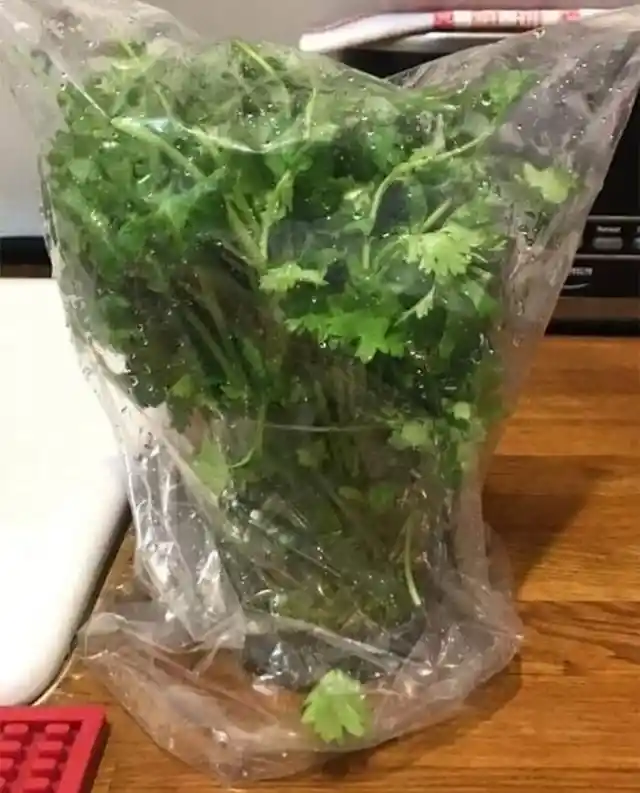
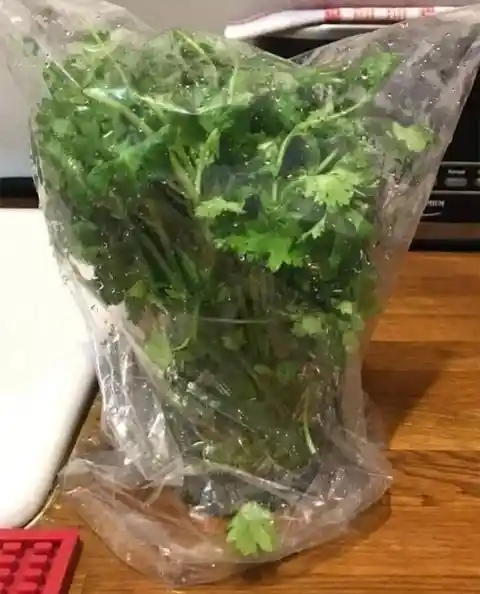
Place the parsley, cilantro, and basil in freshwater, cover with a plastic bag and safeguard with a rubber band. For the best results, change the water every day. Growing these herbs on your windowsill is also very inexpensive and simple.
Store Apples and Potatoes Together
Do you dislike the unsightly sprouts that appear on your potatoes after a few days? It turns out that an apple a day can keep those sprouts at bay. And though potatoes are among the most versatile food products, they require specific conditions to last in your kitchen.
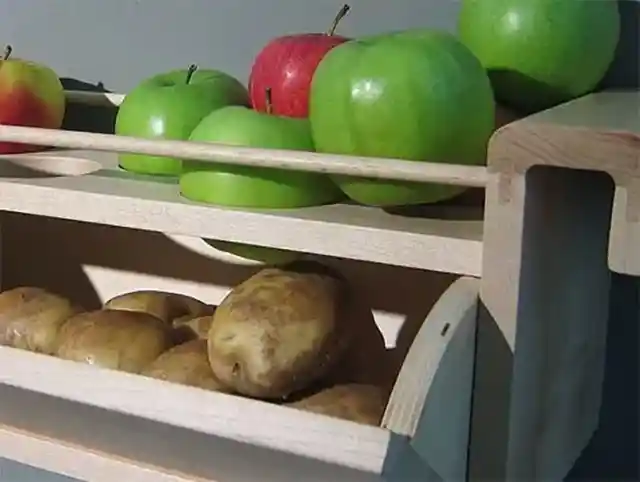
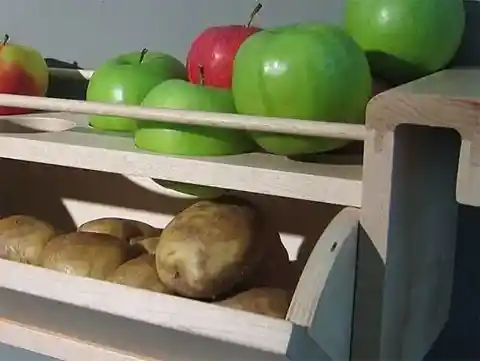
Apples give off the maximum amount of ethylene gas compared to other vegetables and fruits, so they are best for blocking sprouting. Because of this, many people prefer to eat fruits and vegetables that have been stored in the refrigerator. Now you know why!
Organize Your Fridge
We discovered the optimum locations for each category of food to go so that it can last without spoiling, even though everyone organizes their refrigerator differently to make items easy to access. Ensure the vegetable drawer temperatures are set as well, and the fridge is set to 40 degrees Fahrenheit.
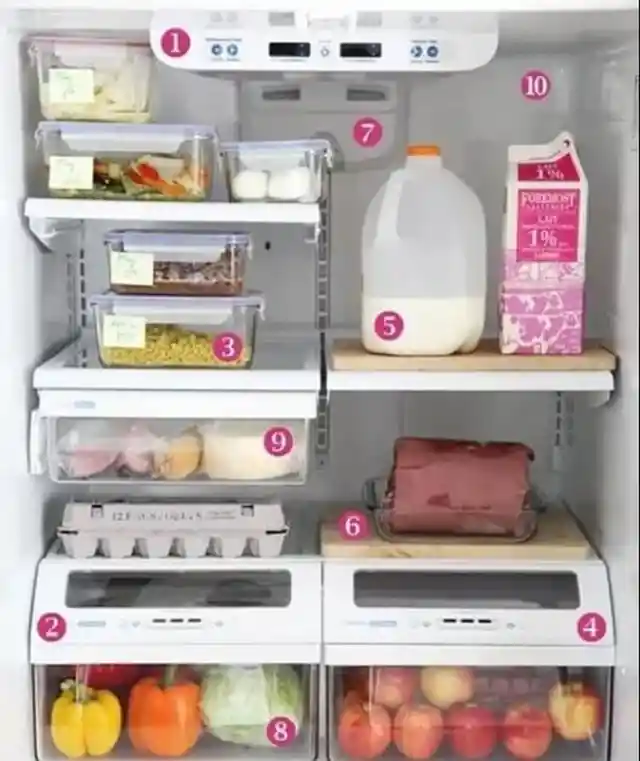
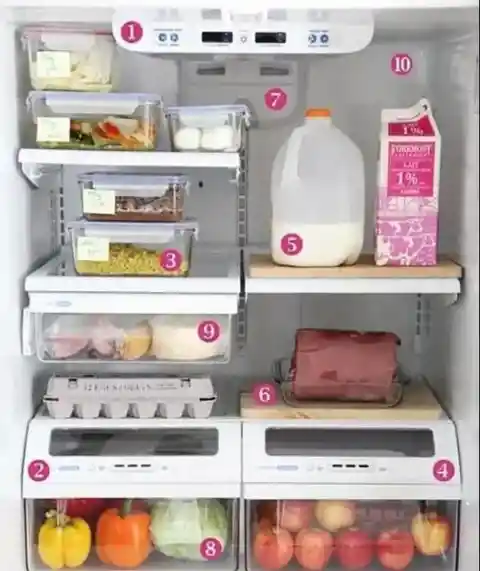
Fruits, vegetables, and meat should be kept separate to prevent cross-contamination. To prevent spills, keep meat and seafood on the lowest shelf. When the fridge is overfilled, air cannot circulate, and some areas become warmer than others, which can destroy food.
Potatoes Love Dark Places
Potatoes that have sprouted are rotten and should not be consumed. You should stay away from this stage of the potatoes' development unless you're trying to sprout one for a scientific experiment. That being said, it’s like throwing money in the trash when you discard them.
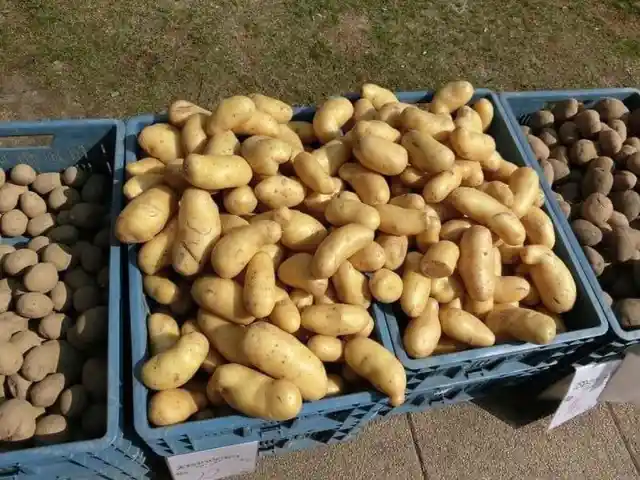
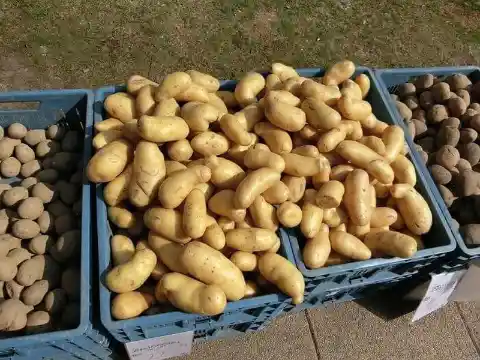
Because they are so simple to handle, they should be easy to keep fresh. The secret is to locate a dark, dry area where your potatoes won't be exposed to dampness. If the potatoes become green, there is too much light present. Baskets with ventilation are also helpful for storing potatoes.
Hidden Meaning in Milk Carton’s Dent
Have you ever wondered why there is a dent in plastic milk containers? Although most people wouldn't give it a second thought, it truly has a purpose. Without performing the dreaded smell test, this dent can assist you in determining whether the milk is good or spoiled.


If the dent spreads outward, the milk is sour, and there is too much gas inside the container. The dent also serves as a shock absorber in case the jug falls, preventing an explosion. If your jug has this feature, you won't ever cry over spilled milk.
Some Alcohol Does Not Expire
You shouldn't feel obligated to immediately consume wine that has been sitting on your shelf for a few years. While most food items in the kitchen have a use-by date, alcohol can be stored for years without going bad.


But keep in mind that they should be kept in a cool, dark environment and should not be exposed to heat or sunlight. The flavor of even something like 10-year-old rum might not be what you were expecting, but it is still safe to drink!
Remove Beet Leaves
Beets can be tasty in many dishes if you wash and cook them properly. Although they leave stains on your hands, clothes, and mouth, they are multipurpose and packed with vitamins that help you stay healthy and strong.
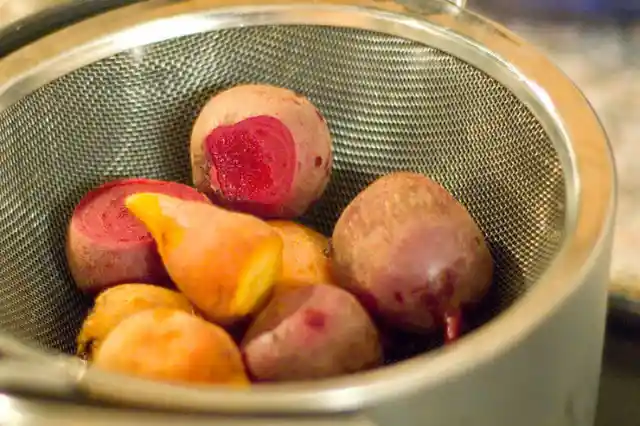
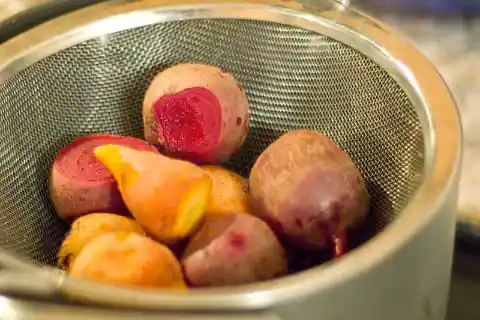
Remove the leaves from your beets if you get them with skin. Doing so will increase their shelf life. The beets' leaves rob them of moisture, causing them to dry and wither. If you don't want to toss the leaves away, you can use them in a salad.